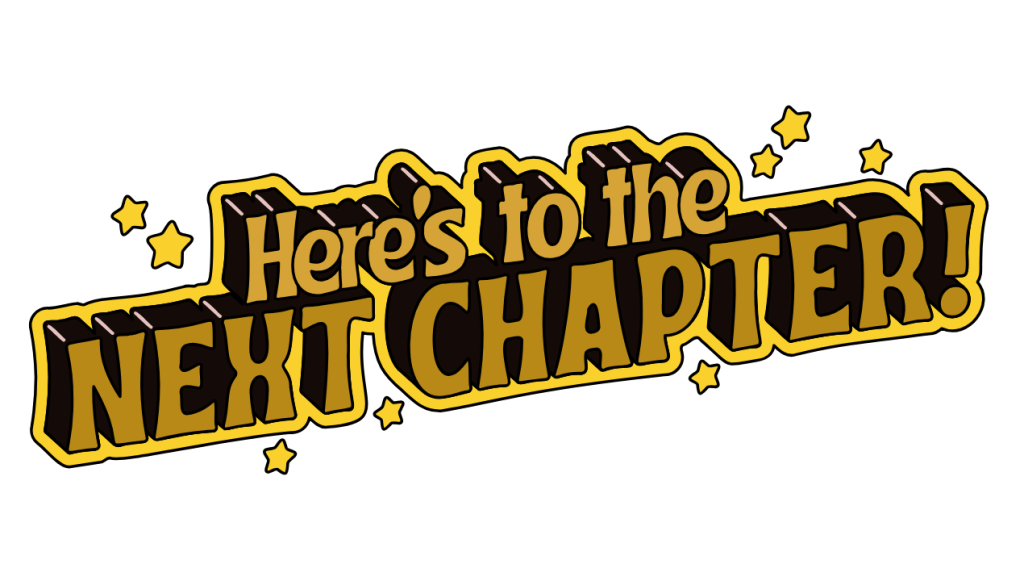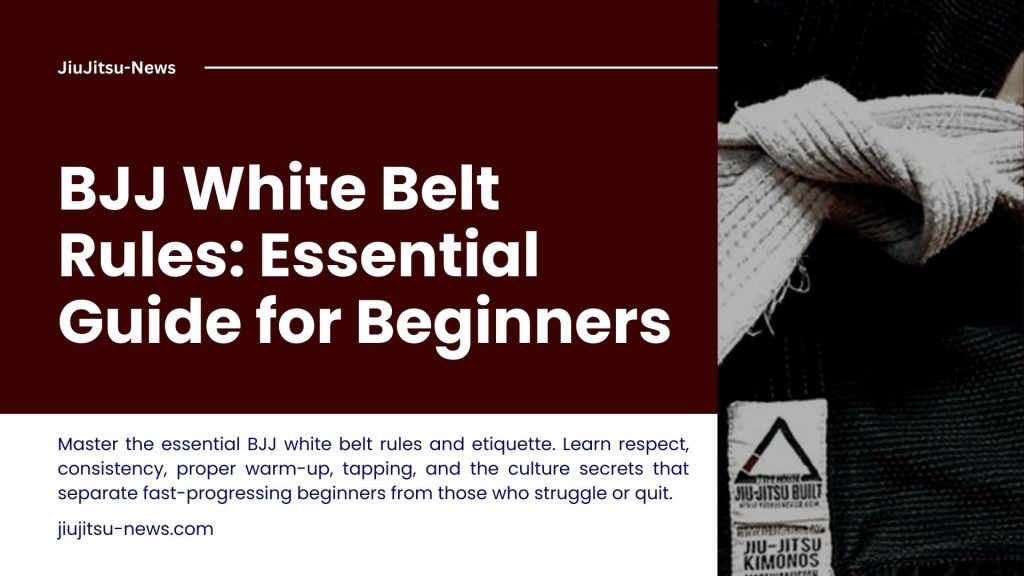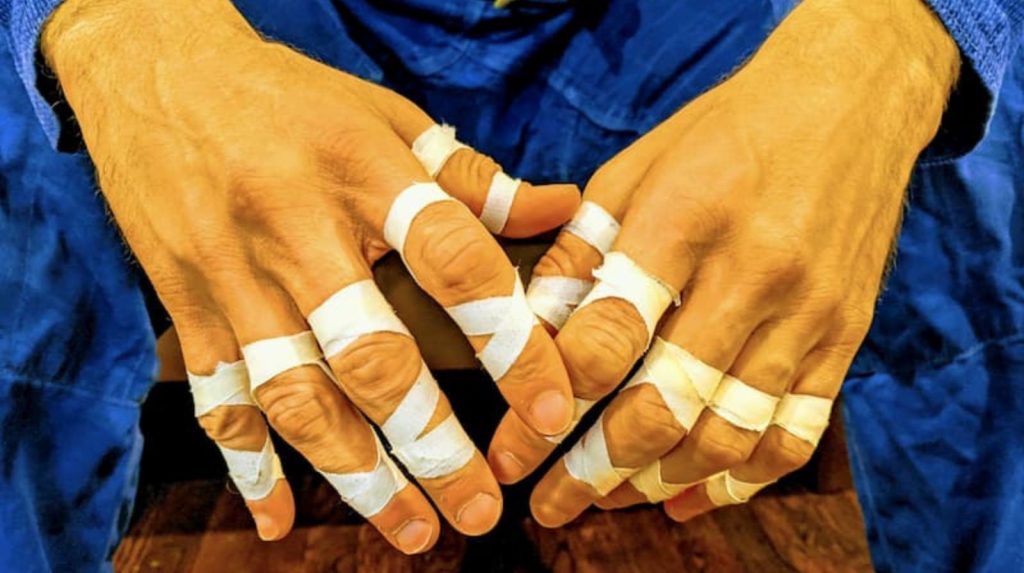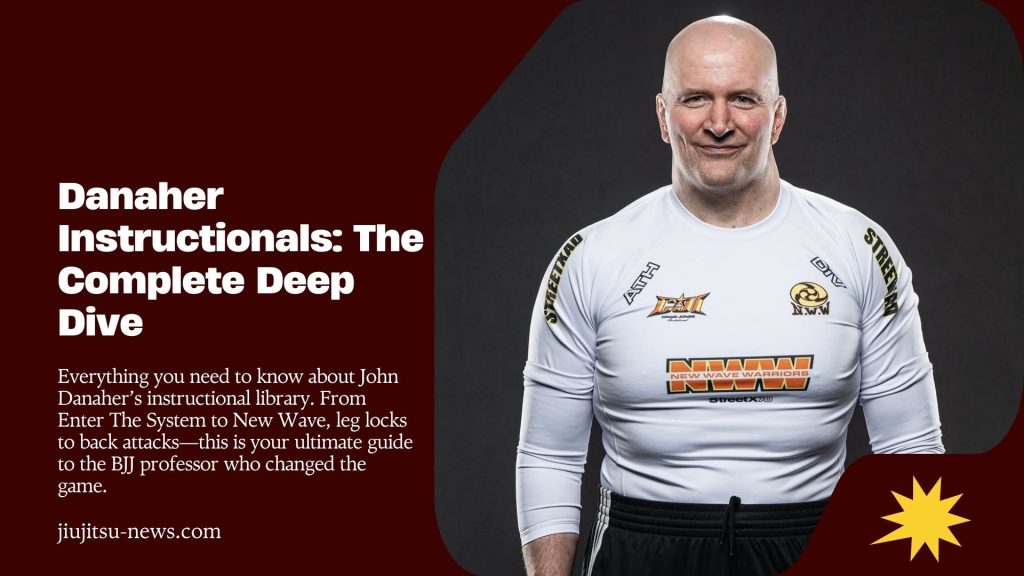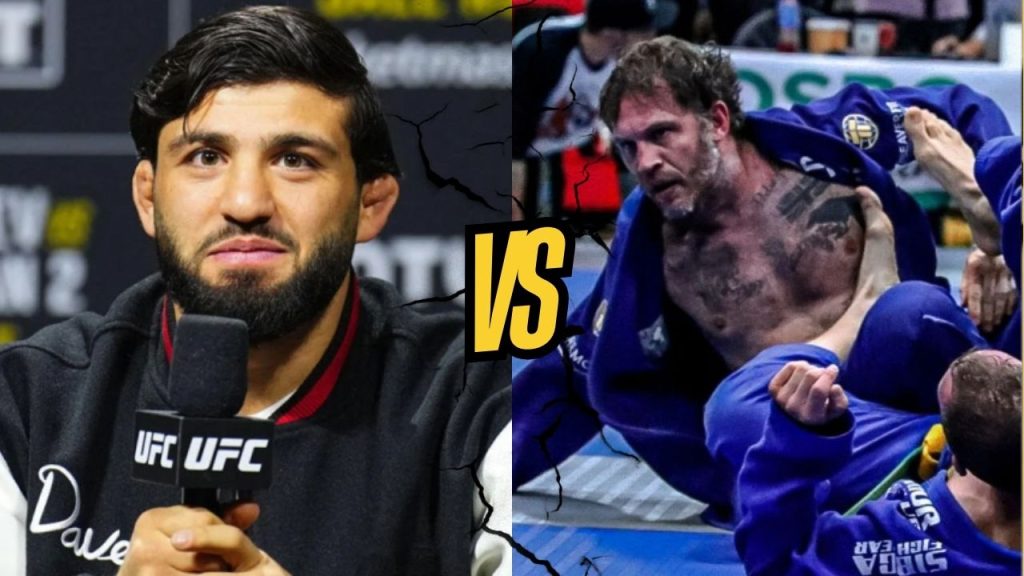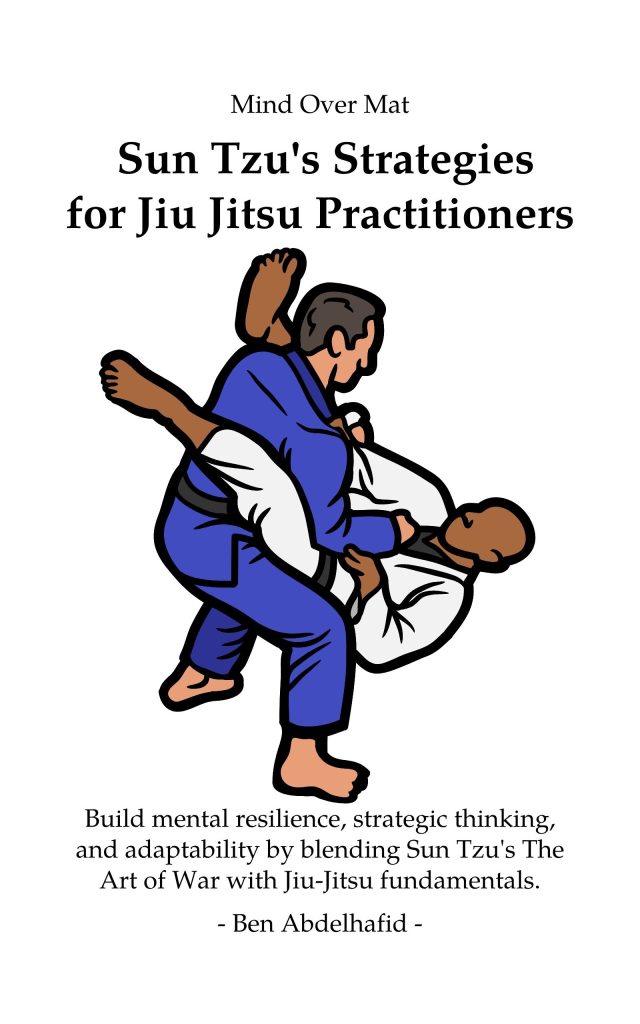
Chapter 5: Time and Rhythm
The Importance of Timing Is in Techniques
When it comes to jiu-jitsu, timing is one of the most important things.
It sets good practitioners apart from those who have trouble using moves correctly.
The idea of timing, which is similar to Sun Tzu’s strategic principles, stresses how important it is to move at the right time.
To take advantage of chances, a general needs to know how battles work.
Similarly, a jiu-jitsu practitioner needs to learn how to start or stop a move quickly.
This knowledge not only makes techniques more powerful, but it also lets you guess what your opponent will do next.
Here’s why timing is important?
1#
In jiu-jitsu, time is very important, and one of the most important parts is matching your moves to what your opponent does.
Practitioners must learn to watch and guess what their opponent is going to do next, which gives them a chance to use methods.
A skilled practitioner knows that when an opponent commits to a takedown, this is the best time to respond with a sweep or submission.
This idea is similar to Sun Tzu’s idea that you can only win if you know both yourself and your enemy well enough to take advantage of their flaws and mistakes.
2#
Also, timing is important for more than just the techniques that are used; it’s also important for the overall plan of the match.
During a jiu-jitsu match, the practitioner must control their energy and pace, knowing when to apply pressure and when to keep their power.
This strategy fits with what Sun Tzu said about how important it is to be flexible in battle.
People who are good at timing can change their approach based on how the match is going, giving them an edge over opponents who may not be as in tune with the match’s rhythm.
I get it! But how can I Improve my timing?
Different drills and sparring sessions that focus on response and anticipation can help you improve your timing.
You can get better at reading your opponents’ moves by doing controlled sparring with a partner where the focus is on timing and reactions.
This practice not only improves your muscle memory, but it also makes you more aware in ways that go beyond just doing the moves correctly.
When jiu-jitsu practitioners do these drills as part of their training, they can naturally get better at timing, which will eventually help them do better on the mat.
Figure out how a match works.
To understand the flow of a jiu-jitsu match is like to understand how a dance works.
In the same way that dancers must be aware of their partners’ moves, practitioners must always know what their opponent is doing and why.
Being aware of this helps a jiu-jitsu practitioner guess how the match will go and react appropriately.
It’s possible to counter and submit an opponent if you can read their body language, pressure, and positions.
Here’s what you should know about the jiu-jitsu match?
The engagement, the exchange, and the resolution are the different stages of a joy-jitsu match that can be looked at from a strategic point of view.
1# The engagement phase
During the fight, practitioners set up positions and grips that prepare them for the next exchanges.
This first part is very important because it often decides the direction of the match.
Practitioners must use strategies that play to their skills while also taking advantage of the weaknesses of their opponents.
A practitioner can set up a strong base for the rest of the match by learning how this phase works.
2# The exchange phase
During the exchange part, skill is really put to the test.
It is a battle for control that goes back and forth and is often marked by a number of transitions and counters.
In this case, time and accuracy are very important. Practitioners must stay calm and watch their opponents’ moves while being ready to change their strategy if necessary.
In this time, fluidity is the key, because being rigid can lead to failure.
Like Sun Tzu said, “Be like water,” practitioners should move easily from one method to the next, taking advantage of opportunities as they come up.
3# The resolution phase
The resolution part decides how the match will end. This is where all of your planning, skill, and mental toughness come together.
A practitioner must be ready to carry out requests or take control of a situation while keeping an eye out for possible counters.
Based on Sun Tzu’s tactical knowledge, understanding the flow means knowing when to push an advantage and when to pull back.
If a jiu-jitsu practitioner stays in charge of the flow of the match, they not only improve their chances of winning, but they also become more resilient against the unpredictable nature of the sport.
The Role of Patience and Timing
When it comes to both jiu-jitsu and Sun Tzu’s ideas about strategy, patience and time are very important.
When practicing jiu-jitsu, being patient lets you watch your opponents, judge their moves, and guess what they will do next.
A jiu-jitsu practitioner must stay calm and collected until the right time to use a technique or defend against an attack, just like a general must wait for the right moment to strike in battle.
This method of being aware helps practitioners stay calm and avoid making hasty choices that could lead to bad positions or submissions.
Here are some importance things about patience and timing:
1#
In his writings, Sun Tzu stresses how important time is, saying that taking advantage of the right moment is often the key to success.
Timing is very important in jiu-jitsu. If you don’t, you could lose your sweep.
It is very important to know when to put pressure on someone and when to back off.
Practitioners are told to get very good at time so that they can take advantage of gaps in their opponents’ defenses.
This knowledge not only helps them get through a match better, but it also helps them understand the ups and downs of battle better.
2#
Also, the idea of waiting goes beyond the individual match.
Jiu-jitsu is a way to improve your skills and grow as a person that lasts a lifetime.
Practitioners need to get used to the fact that mastering methods and improving their game takes time and can be frustrating at times.
Sun Tzu’s wise words teach us that wins often come from long-term planning rather than quick results.
This way of thinking fits perfectly with a determined jiu-jitsu practitioner who knows that progress is slow and that patience is a virtue that leads to mastery.
3#
Timing is also very important when it comes to training and competition as a whole, not just for individual games and growth.
For long-term improvement, it’s important to know when to push yourself in training, when to rest, and when to fight.
Sun Tzu’s teachings tell us that knowing your environment, including your own and your opponent’s physical and mental state, can have a big effect on how well your strategy works.
If practitioners follow these lessons, they will probably be able to improve their skills and stay healthy without getting hurt or burned out.

